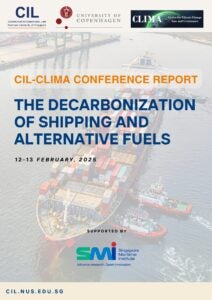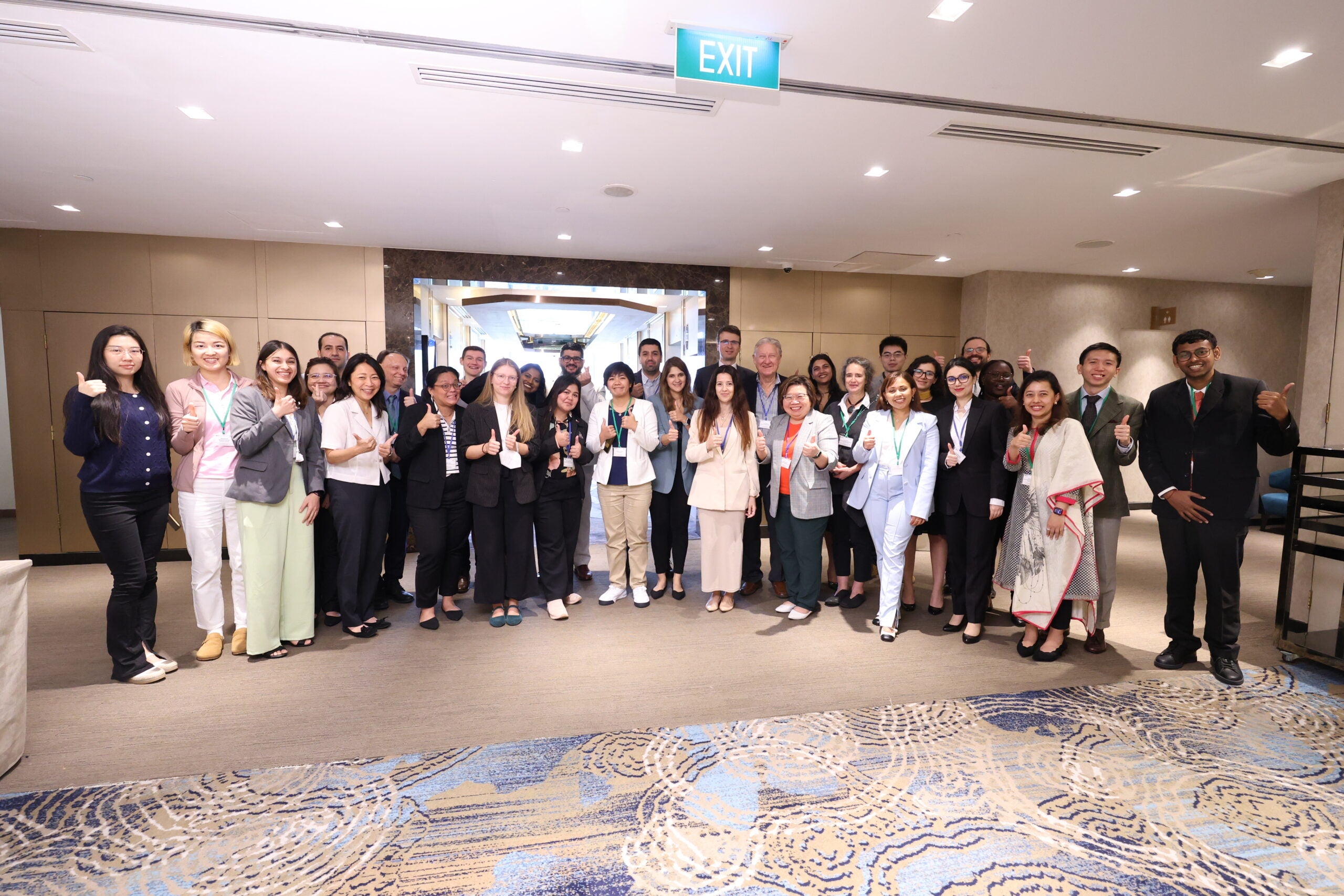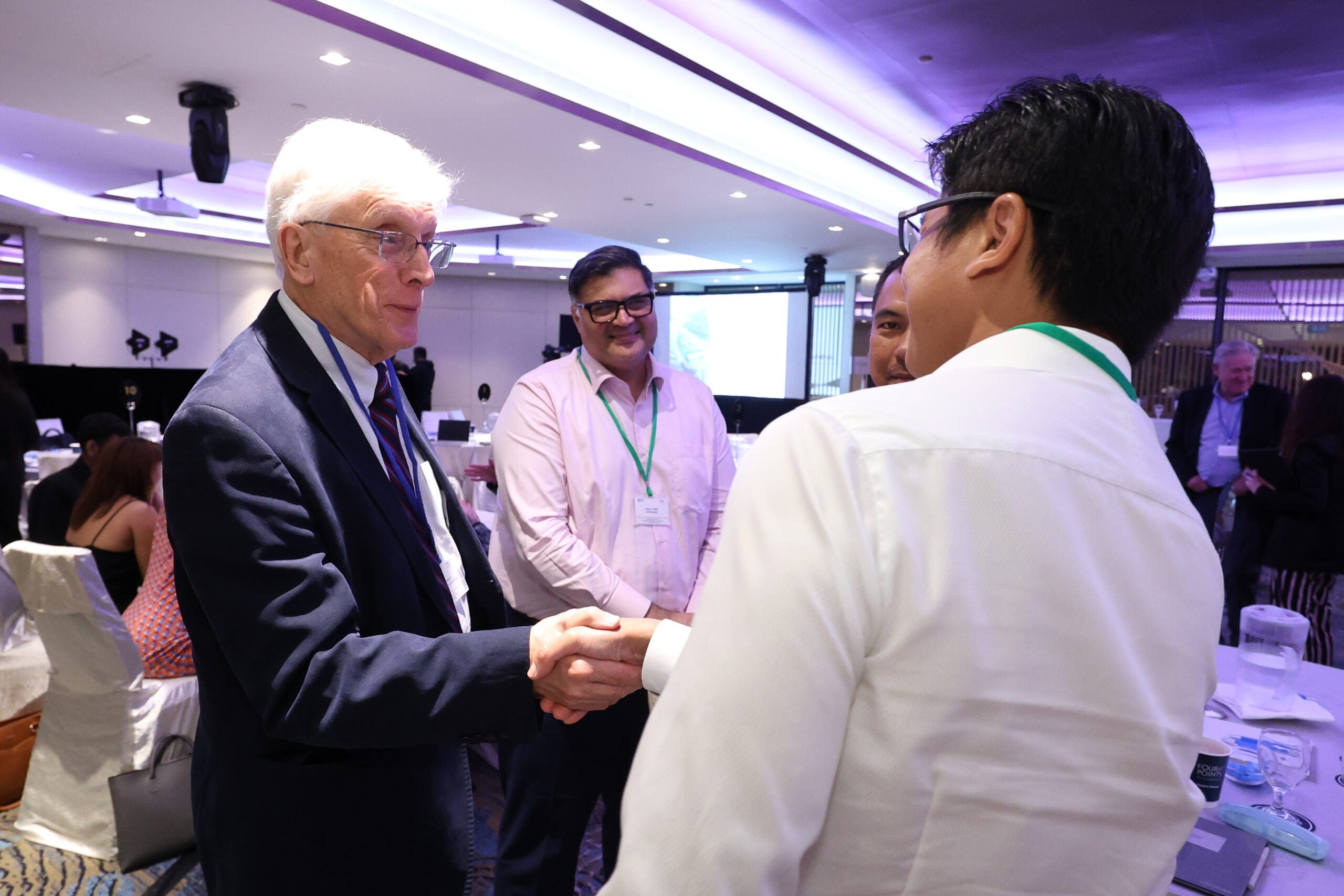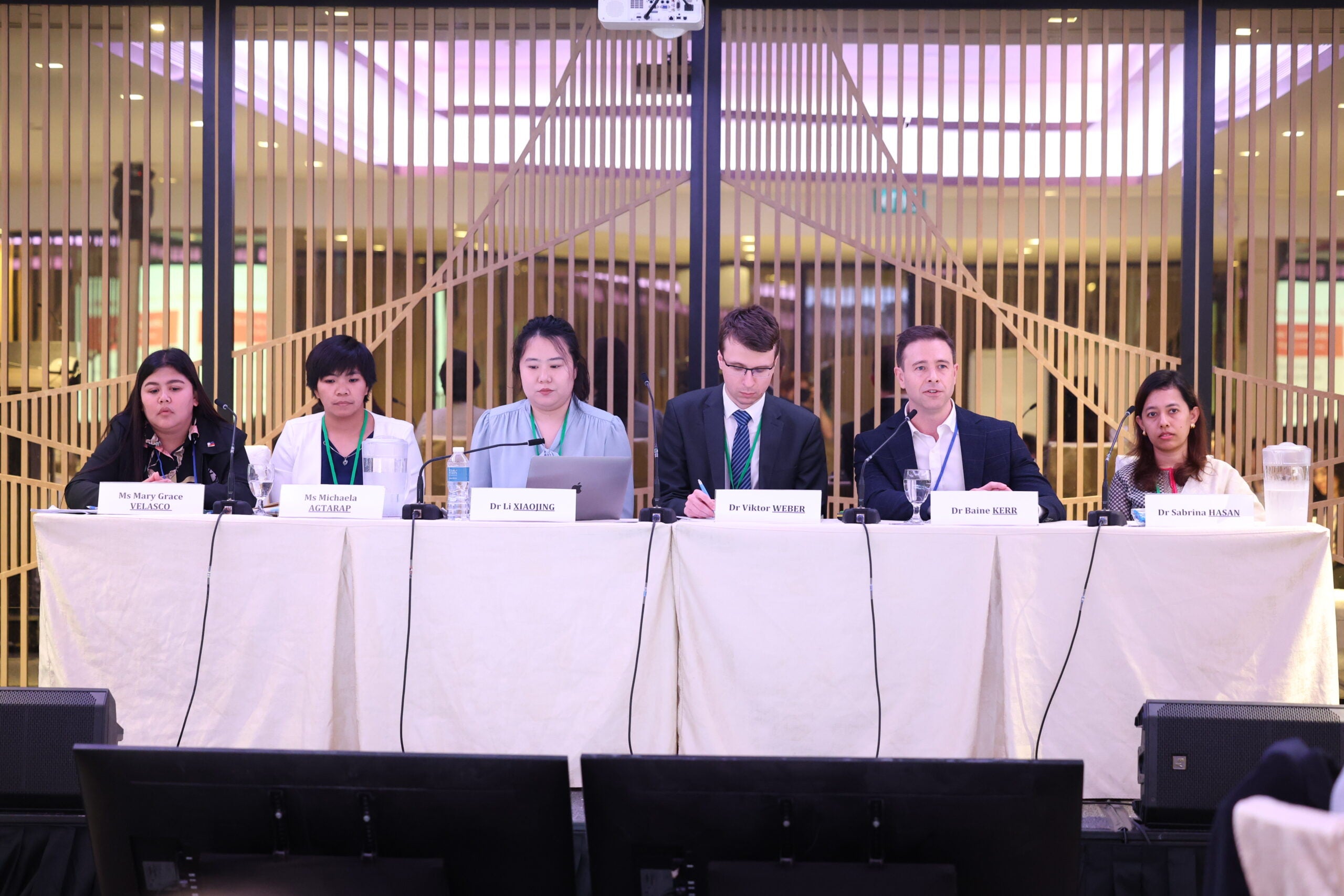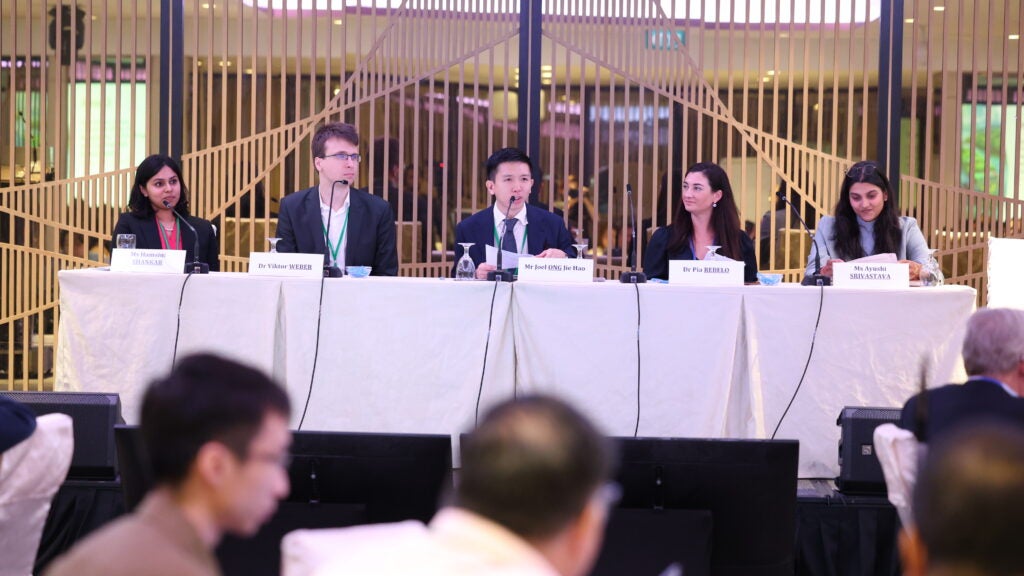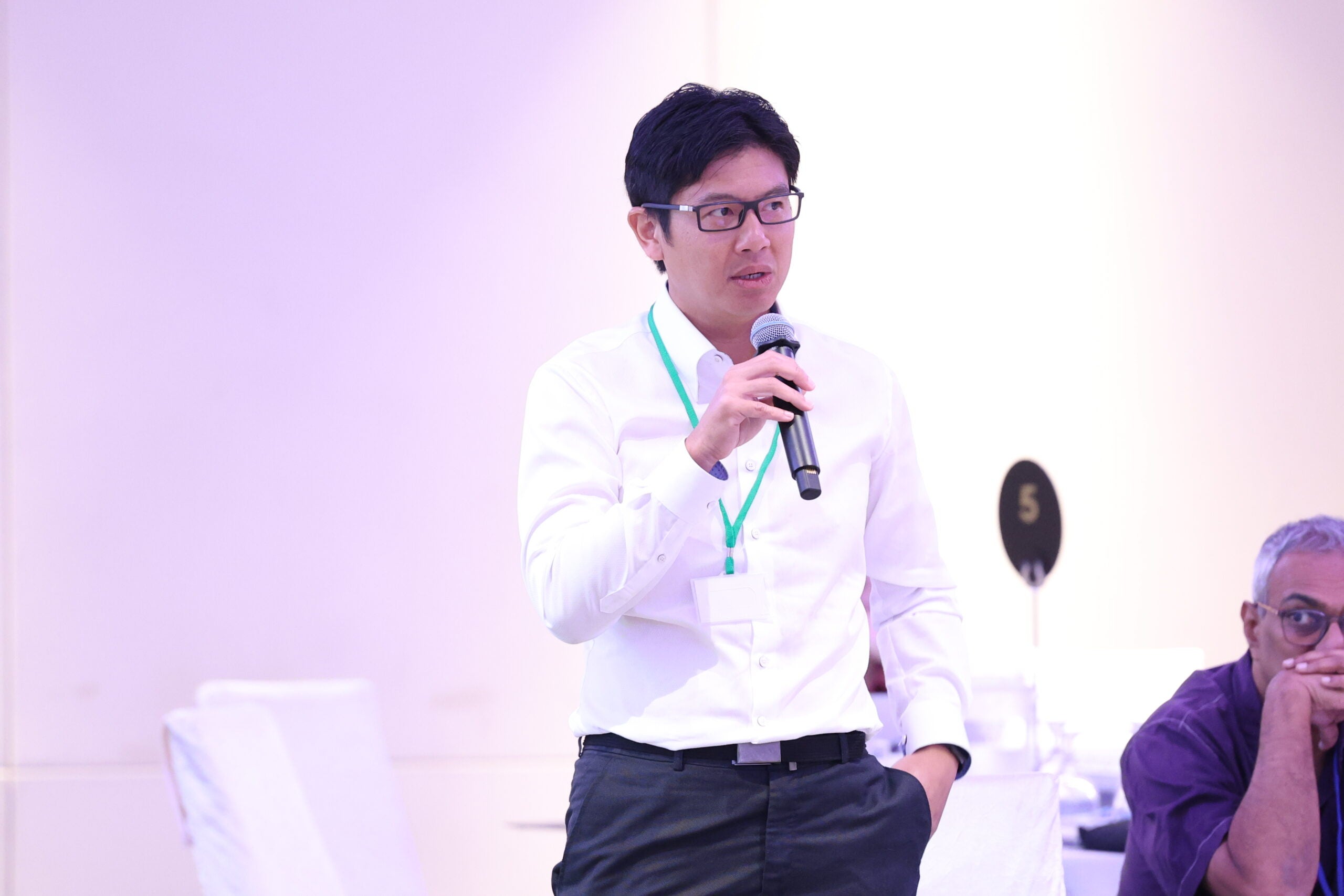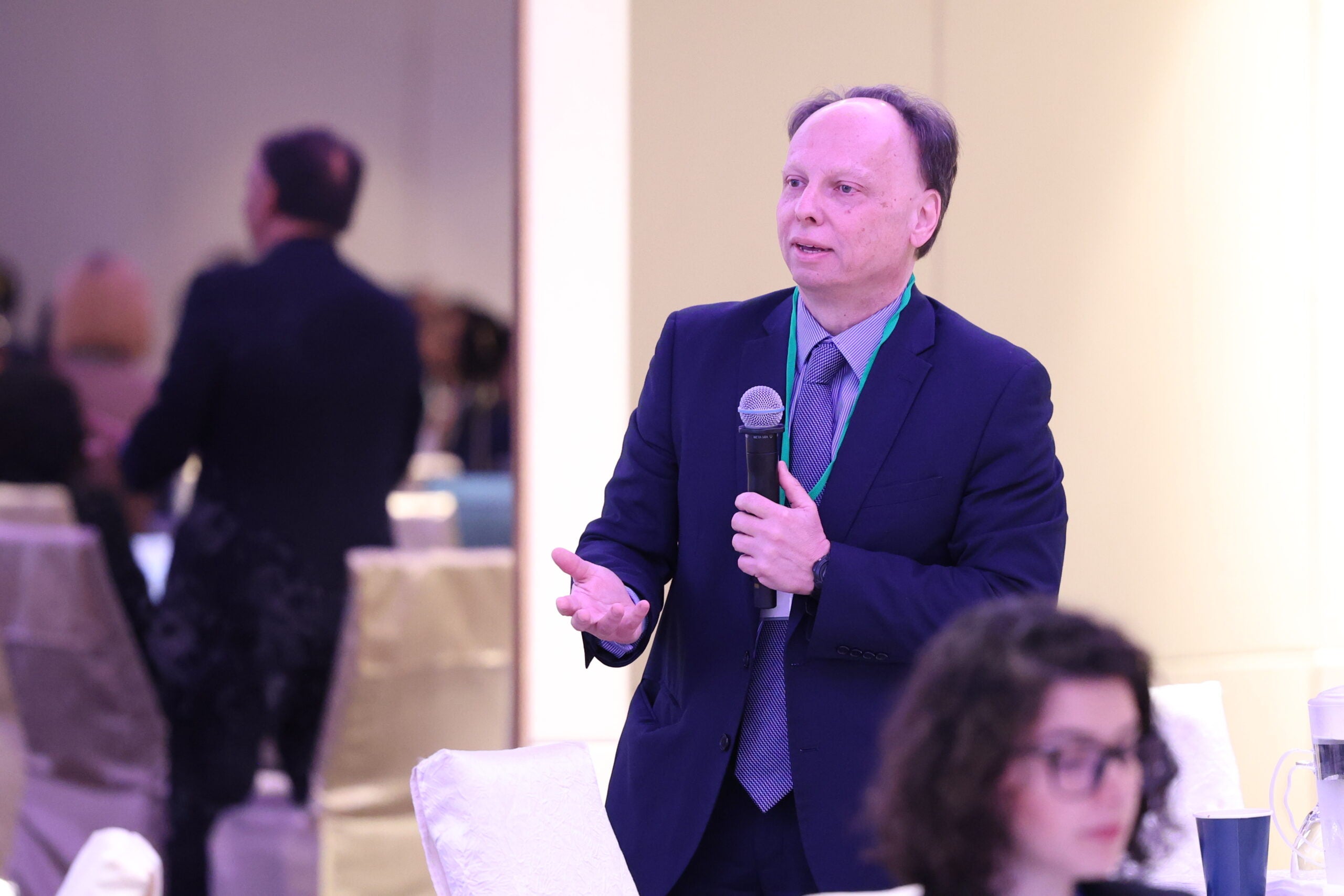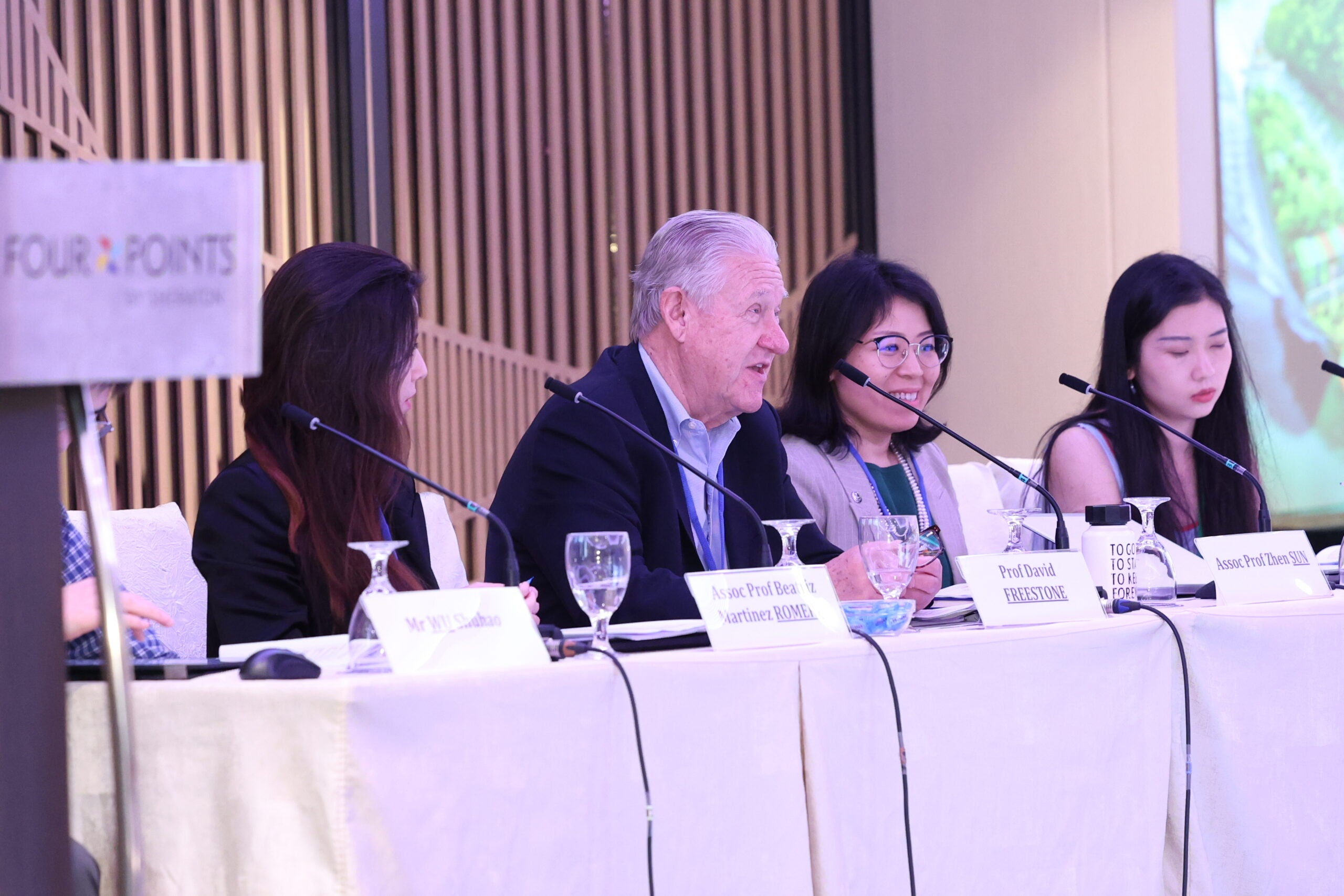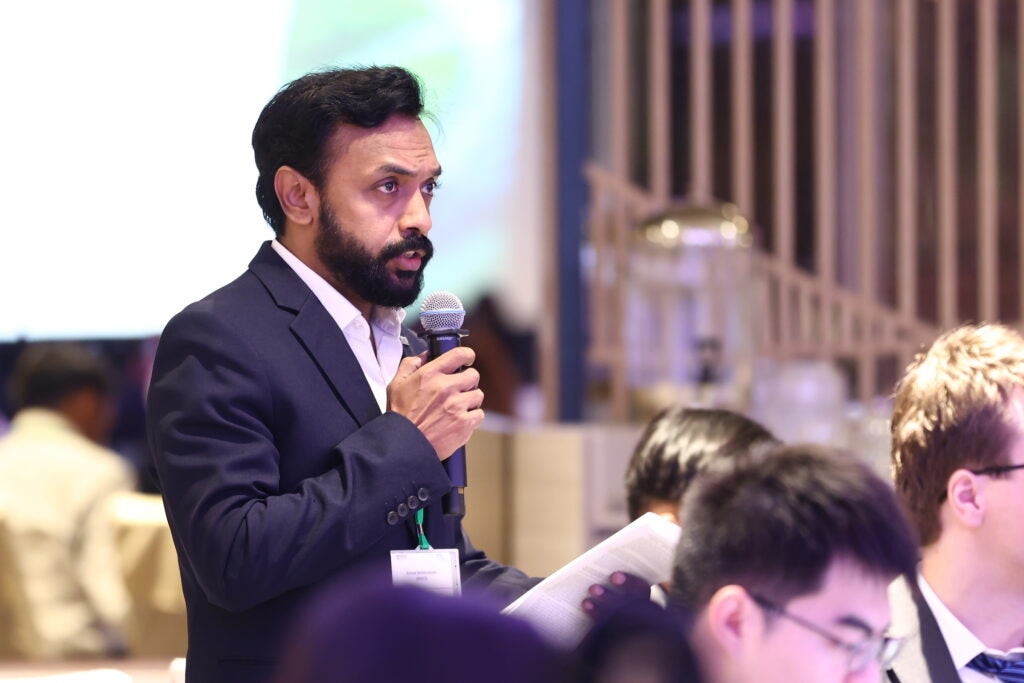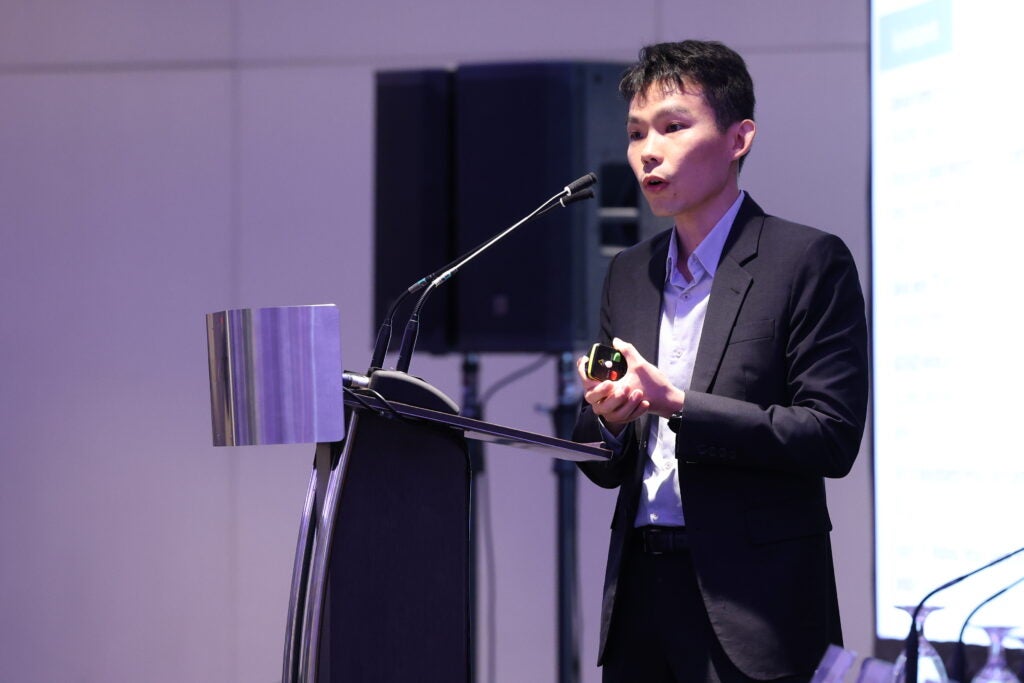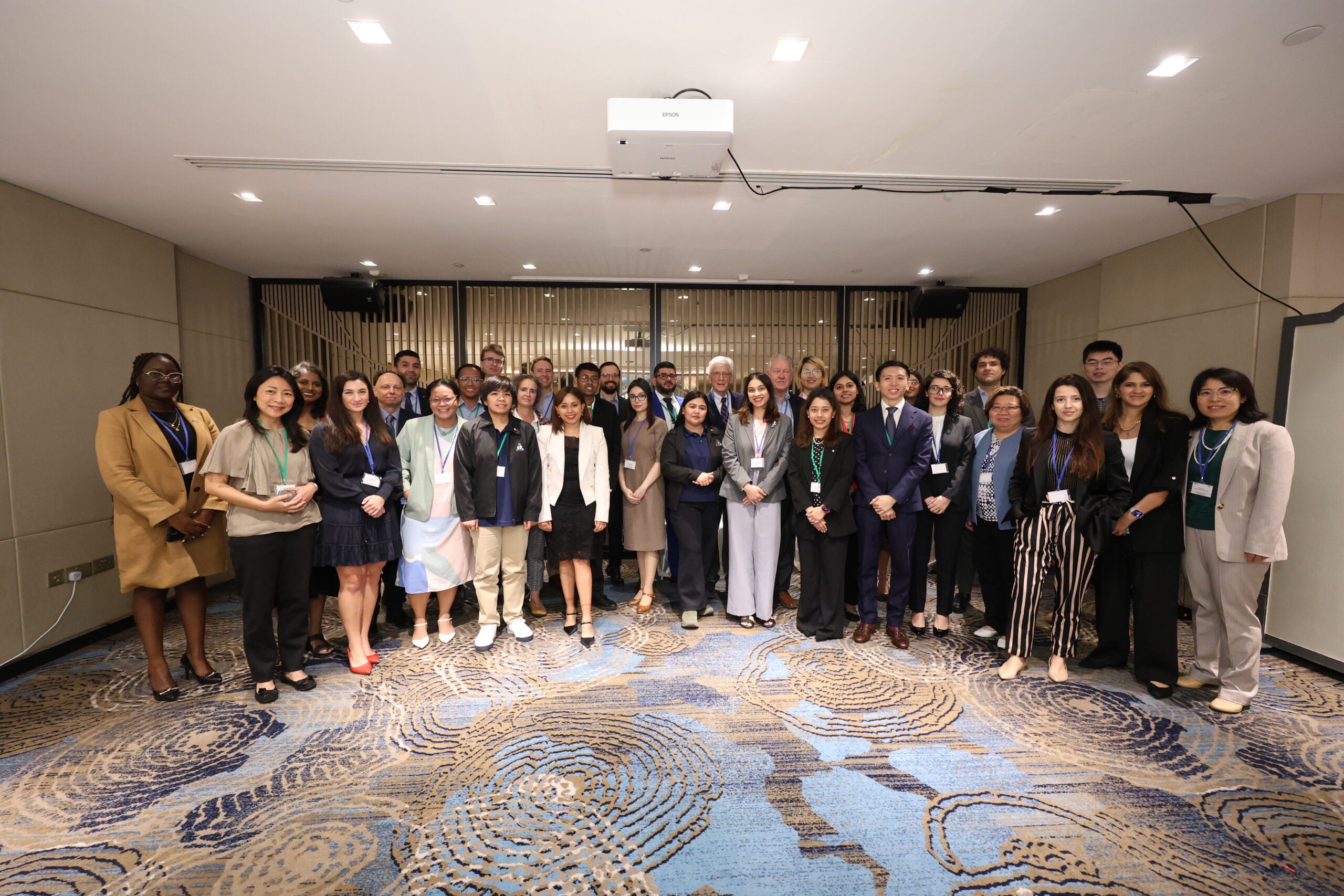Start
End



CIL-CLIMA Conference on the
Decarbonization of Shipping and Alternative Fuels
12 – 13 February 2025, Singapore
On 12-13 February 2025, the Oceans Law and Policy team of NUS Centre for International Law and CLIMA - Centre for Climate Change Law and Governance organised a Conference on the Decarbonization of Shipping and Alternative Fuels in Singapore at the Four Points by Sheraton Hotel, with the help of the CIL Energy Law & Policy and Climate Law and Policy teams.
It examined gaps in the applicable rules and regulations governing maritime transport, and how they can be addressed to enable safe and equitable transition pathways towards net-zero through the adoption of alternative fuels.
We had a call for abstracts which was very well received, receiving 85 abstracts in total. The conference also had more than 30 speakers give fantastic presentations and we had geographical representation from Americas, Africa, Europe, and Asia, to different levels of seniority and balanced gender representation. We also had sixty participants including speakers from all over the world as well as government and industry which made for very interesting discussions. We had very positive feedback and the junior scholars in particular were very grateful for the opportunity.
CIL and CLIMA wishes to thank the speakers and moderators for their time and fantastic presentations. They were very succinct, thought-provoking and brought important discussions in the context of decarbonisation of shipping with their diverse sets of expertise.
We would also like to extend our gratitude to the Maritime and Port Authority of Singapore (MPA) and Singapore Maritime Institute (SMI) for always providing the generous support to our research! And to the Energy Law and Climate Law team at CIL for the wonderful interdisciplinary collaboration.
This Conference was organised into 8 sessions over 2 days, with a Closing Panel providing key takeaways and their thoughts on further areas for research in the future.
CONFERENCE REPORT (Click on image to download the report)
KEYNOTES
Keynote - Robert Beckman_CIL
Keynote - Tan Hanqiang_MPA
PRESENTATION SLIDES
Session 1
Session 1 - Zhen Sun_ Shipping Decarbonization and the Implications of the BBNJ Agreement
Session 2
Session 2 – Tristan Smith_Alternative fuels for shipping decarbonization post 2023 IMO Strategy
Session 2 - Viktor Weber_Green Fuel Procurement: Incidence in the Shipping Value Chain
Session 2 – Hamsini Shankar_Weighing anchor for low-carbon shipping: removing regulatory barriers
Session 3
Session 3 - Railla Puno_Just Transition of the Shipping Sector
Session 3 - Goran Dominioni_ Equity-Related Considerations in the 2023 IMO GHG Strategy
Session 4
Session 4 - Theshaya Naidoo_The Critical Role of Technology in Alternative Fuel Adoption
Session 4 - Rafael Prado_The Role of the Precautionary Principle in Shipping Decarbonization
Session 4 - Darryl Isabel Auma_Voyage into the Future: Ensuring Safety in Hydrogen Powered Shipping
Session 5
Session 5 – Michael Tsimplis_Liability and Decarbonization of Shipping
Session 6
Session 6 - Tobi Menzies_Building the first OECD Maritime Civil Nuclear Program
Session 6 - S Nivedita_From Safety to Liability: Charting a Course for Nuclear-Powered Ships
Session 7
Session 7 - Miaomiao Yin_Decarbonization in Antarctic tourism: legal pathways and challenges
Session 8
Session 8 – Baine Kerr_Sailing Through the Golden Gate
PRE-EVENT INFORMATION
The NUS Centre for International Law (CIL) and the Center for Climate Change Law and Governance (CLIMA) Faculty of Law, University of Copenhagen are holding a two-day conference ‘Decarbonization of Shipping and Alternative Fuels’, which will take place in Singapore and online (in hybrid format) on Wednesday and Thursday, 12-13 February 2025.
The CIL-CLIMA Conference brings together experts in shipping regulation, law of the sea, energy transition and climate change to discuss pressing issues relating to the development and adoption of low- or zero-carbon alternative fuels to achieve the targets set out by IMO in its Revised GHG Strategy.
Conference Background and Overarching Questions
The International Maritime Organization (IMO) devised a Greenhouse Gas reduction Strategy in 2018 detailing its ambitions to decarbonize shipping. The latest iteration of the GHG Strategy was adopted by the IMO’s Marine Environmental Protection Committee (MEPC) in 2023 and is also known as the “2023 Strategy” or “Revised Strategy”. This strategy outlines a GHG emissions reduction target of achieving net-zero emissions based on 2008 baseline levels by 2050 and sets out interim checkpoints every decade in 2030 and 2040 respectively. It further states a timeline of short-term (2018-2023), mid-term (2025-2030), and long-term (beyond 2030) measures to implement the 2030 to 2050 emissions reduction targets.
As a key measure of the IMO’s envisaged package of mid-term measures, the research and development and eventual use of alternative fuels which are low- or zero-carbon in nature to substitute traditional bunker fuel oils onboard commercial ships is considered critically important by the IMO to achieve its climate change ambitions for shipping. However, there are several challenges to overcome to make the widespread adoption of alternative fuels feasible. First, the infrastructure required to support the ecosystem of alternative fuels has not reached maturity and is very costly. This includes the production and supply facilities for the manufacture of alternative fuels, shipyard and costs for retrofitting or building new ships, R&D for new engines running on or transporting alternative fuels, and the necessary training and upskilling of crew to operate new alternatively fueled vessels. The IMO has therefore envisaged a basket of technical and economic mid-term measures to reduce the cost gap between traditional and alternative fuels to incentivize uptake. That said, the economic measures is envisaged to result in the collection of funds and proceeds from the GHG pricing mechanism. Yet the institutional arrangement, and regulatory mechanisms for the management of such a “GHG” Fund is unclear in different connections. Second, the human safety and environmental implications of alternative fuels are fundamentally different from traditional fuel oils, and therefore the Pollution Prevention and Response (PPR) and co-operation regimes (e.g, under the International Convention on Oil Pollution Preparedness, Response and Co-operation) would have to be updated. Third, the fundamentally distinct physical properties of alternative fuels creates a gap where a spill of such fuels from ships (both for transport or bunker) falls outside existing liability and compensation regimes. Fourth, how can law and regulation (particularly international law) assist in unlocking efforts for cooperation and standard-setting for crew training and identifying gaps which need to be filled? And lastly, the use of alternative fuels creates cross-cutting and regulatory issues including the accessibility of Least Developed Countries to these new technologies and their capacity building or lack thereof, and the implications for IMO regulations moving forward.
The CIL-CLIMA Conference on the Decarbonization of Shipping and Alternative Fuels aims to examine the gaps in the applicable rules and regulations, and how they can be addressed to enable safe and equitable transition pathways towards net-zero through the adoption of alternative fuels. The rationale for this examination is that both industry and governments have started to invest heavily into the use of alternative fuels, and therefore have a common interest in promoting greater legal certainty around the regulatory regime applicable to alternative fuels. In addition, both industry and governments have an interest in the safety of alternative fuels to the health and welfare of seafarers.
Keynote Speakers
The conference will feature two prominent keynote addresses:
- Shipping and the Environment: Evolution and Paradigm Change in the Age of Climate Change
Robert Beckman, Emeritus Professor, Faculty of Law, National University of Singapore; Co-Head, Ocean Law and Policy, NUS Centre for International Law (CIL)

- Fuels and the Decarbonization of Shipping
Tan Hanqiang, Deputy Director (International), Maritime & Port Authority of Singapore; Vice-Chair of Marine Environment Protection Committee (MEPC), IMO

Conference Themes
The conference is organized around 8 engaging thematic sessions addressing the legal and/or regulatory aspects of the decarbonisation of shipping:
- Overview of the Legal and Regulatory Environment on Decarbonisation
- Alternative Fuels: Understanding the Regulatory, Technological and Commercial Environment
- Just & Equitable Transition and Energy Justice
- Alternative Fuels: Safety and Environment
- Liability and Compensation
- Nuclear Powered Vessels
- Regional approaches
- Domestic approaches
Registration
- Participation is by invitation only, and the number of seats is limited.
- For invited participants, lunch and BBQ dinner will be served.
- Acceptance is on a first-come, first-served basis.
- Kindly register as soon as possible and by Monday 3 February 2025 to secure your place at the conference.
If you are interested to attend, please write to Dr Su Wai Mon at su.wm@nus.edu.sg
We look forward to welcoming you to the conference!


